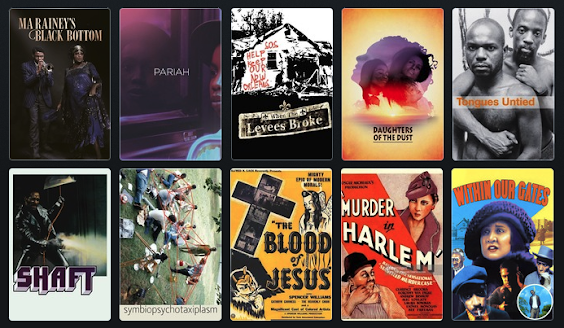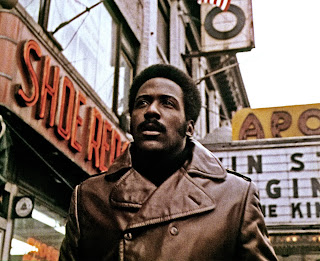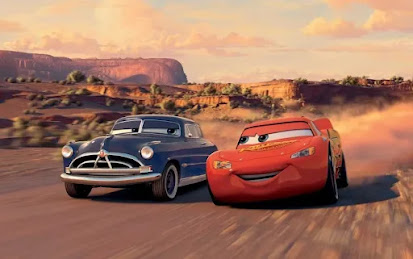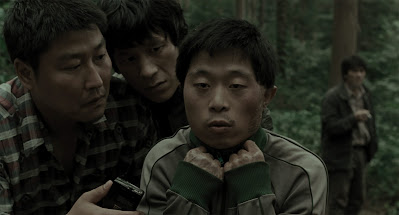10m10d - Black Directed Films
Welcome back to the followup on this month's 10 Movies 10 Decades. I was pretty excited to knock out this month's selection so the project is done! I'll do quick reviews of each one in the order I saw them, chronologically.
First was Within Our Gates (1920), which was a really good film! I'm still getting my feet wet in experiencing silent movies but this one had a lot going on. At first I was overwhelmed by all the different story lines, trying to keep them straight. Once I actually stopped doing that I was able to just let the experience wash over me. It truly became a time capsule of the era showing something we don't normally see in silent films - Black folk with any amount of agency. Some were villains, some were heroes. There was a moral spectrum on display here and it was wonderful! Here's a film I look forward to revisiting.
Murder in Harlem (1935) is actually much the same, which is no surprise as Oscar Micheaux directed both. This time a talkie, Murder in Harlem actually drags a little more than Within Our Gates and the production value is showing a little more, but it's still a fascinating time capsule of Black culture in the 1930s, still with one too many story lines and a whole lot of characters. In this, Micheaux explores having a story jump in time. Not sure it delivered as he'd like, as it felt like two separate stories connected tenuously but you're showing up for Micheaux more for the history and experience.
Spencer William's 1941 film The Blood of Jesus was actually a mixed bag for me. While, much like Micheaux's work, it's a time capsule, now of rural Black culture in the 1940s instead of in the city earlier, it was very much designed to be a religious parable. Once the Devil showed up there was some conflict and decisions for the character, Sister Jackson, to make, however very limited. I may be biased as I didn't feel it had much beyond religion, a topic that bores me without any critical eye on it, but mileage may differ for others. I don't want to turn folks off of this and would rather just say "it wasn't for me."
What was for me was William Greaves' 1968 film, Symbiopsychotaxiplasm: Take One. A film where a film crew is trying to film some screen tests and taking time to discussing the filming of the film. But is this candid or scripted? While it's not as overt as 8 1/2 or Adaptation on being a meta film about creativity what's more fun about Symbiopsychotaxiplasm: Take One is how authentic it feels as just some footage of a screen test and not an actual film of about a screen test. I actually didn't like it at first because it felt like it really was just an unplanned mess being filmed to see what they get. And then you get the sneaking suspicion that was an intended feeling Greaves wanted you to have and that it truly is all scripted. You begin to question how much of it really is scripted. You begin to question if it matters? Another film I'm really looking forward to revisiting.
And that takes us to Shaft (1971) by Gordon Parks. I grew up in a world where the very concept of Shaft had been consumed by pop culture and spat out into so many different parodies and the like that the original didn't sound interesting anymore. It's like entering Goodfellas after watching every Goodfeathers short on Animaniacs a few dozen times - it's just... weird. Fortunately, that actually didn't impact my appreciation of Shaft! In fact I flipping loved it! I've been finding myself a fan of hard-boiled noir more and more, and, baby, you don't get more noir than John Shaft. This is one of those films that I fell in love with quickly, kicked myself for not seeing it sooner, and am grateful I finally saw it at all.Tongues Untied (1981) directed by Marlon Riggs is almost a documentary and certainly art. It's cinematic poetry with the lens pointed at the Black gay experience, but more importantly focusing on where the Black and the gay intersect. It's powerful and unlike the rest of the films I watched this month, I felt like an interloper stumbling in. I don't mean to say that this wasn't for me at all. But it wasn't made for me - it was made for Black gay men trying to survive in a United States that had two reasons to hate them. It felt like a song for the fellow Black gay men and a plea for things to change with everyone else. It was incredibly candid and I appreciate Riggs for this film and am grateful it survived to be seen.
If I felt like an interloper with Tongues Untied, I somehow felt like family with Julie Dash's Daughters of the Dust (1991). It was so intimate with everyone being vulnerable, catty, loving, and everything between - like family. It was phenomenal with its dreamlike moments rife with magic realism. I loved it.
That takes us to When the Levees Broke (2006). This documentary series by Spike Lee was something. Once again, intimate is the word I'd use. A bit about myself, I volunteered to help with the clean up effort in Spring Break 2006 - about eight months after Katrina hit and I gotta say, this documentary hit damn close and hard to the mark of what it felt to be there. It reveals plainly what the most vulnerable have already been saying - we are all one disaster away from collapse. It reveals the cruelty at the core of the United States that watched as our president decided to stick with his vacation than cut it early for the largest natural and man-made disasters we had seen in a generation. We heard over and over that what happened after Katrina, in a nation that prides itself on being able to afford to doing any military strike in the world, just couldn't find the money to help its own people. Alongside with Harlan County, USA (1976), I actually feel When the Levees Broke should be required viewing in this country so we don't forget.
Next was Dee Rees' 2011 film, Pariah. Suggested by my friend, Alicia in the Laserdisc Party community, and I'm super grateful for it. This film resonated with the high school experience, touching close to what it is to be a curious teenager learning more about themselves and the world around them and at the same time exploring what it meant to be Black as well as exploring the bounds of femininity, gender, and sexuality. It was beautiful and I really can't wait to revisit it.
Rounding up the line up is George C. Wolfe's Ma Rainey's Black Bottom (2020). Adapted from the 1982 play by August William but this was my first exposure to it, though with Charles S Dutton and Whoopi Goldberg playing the lead roles from a 2003 Broadway revival, I feel like I may have to hunt down if that exists in a recorded form. Once again, intimate is the word I'd use to describe this one - we have a bunch of folks in a room so hot and small you can't tell where one's sweat begins and the other's ends. Everyone's performance was phenomenal, but the accolades Chadwick Boseman and Viola Davis drew from their performances were more than well-deserved.
 |
| There were decisions made with this 1950s film poster. |
And that touches on the films that still exist are a miracle. Within Our Gates was not Oscar Micheaux's oldest film... but his oldest surviving film. There were Black directors before him, too. The fact that Within Our Gates, generally considered his response to Birth of a Nation, is available today is nothing short of a miracle. Within Our Gates was fought by censors and even banned in some cities because of its (non-explicit) depiction of a lynching and an attempted rape. But that's not the only film on this list that faced political backlash.
Over sixty years later, Tongues United was fought by politicians at the day. Pushed back against by every conservative in the nation for being offensive, Riggs defended it saying that the "implicit in the much overworked rhetoric about 'community standards' is the assumption of only one central community and only one overarching culture standard to which television programming must necessarily appeal." That hit me in the gut because that is 100% still relevant today, not just with television programming but with all entertainment.
Do I feel that I now know the Black experience? I wish I had the confidence to say that ten movies, each from a different era has given me full understanding of another culture, but no. I do not know the Black experience because of these films. I feel I have some better insight. The best insight is that how much things change, they stay the same. One might argue that the lynchings in Within Our Gates aren't still happening but I'll just throw back at you names like Eric Garner, Trayvon Martin, and Breonna Taylor. And with the raging against "woke culture" and critical race theory pulling Black stories off the shelves in schools and libraries, the censorship that Micheaux and Riggs felt is definitely alive and well.
There was one general commonality that everyone that Knows is screaming at me to mention - white malice. In the form of the racist lynch party in Within Our Gates; in the form of a murderous business owner in Murder in Harlem, holding physical and economic power over the Black characters; in the gentrifying mob in Shaft; in the face of Michael Brown, Dick Chaney, and George W Bush, and even that Ninth Ward resident that felt the need to grab four guns in order to go home in When the Levees Broke; and in the white manager and record exec in Ma Rainey's Black Bottom having an arm wrestling match with Ma Rainey.
But even in the films that don't showcase the white malice - it's there. Daughters of the Dust are the descendants of slaves, living in their own community, basically secluded from the world. Seeing the character Bilal, the last surviving slave to have been brought over, reminds you this family is not on this island because it was their ancestral home, but their home they made it. They were brought to this land by white hands and stay on that island to avoid white violence.
In Tongues Untied, internalized racism is touched on, with Riggs talking about trying to assimilate into the gay community, verbally excluding the word "white" but then talking about how no one in the community looks like him, no one in magazines or porn he consumes looks like him, how in the community he had become a novelty. The things he endured to try to find a home among who he thought were his people broke my heart. How he had to put on a minstrel show. And then you have white men like Pat Buchanan attacking the film after it's made because it offends him - using it as a political tool.
Even in Symbiopsychotaxiplasm: Take One, I felt nervous. When the cop approaches and confronts Greaves, there was an anxiety there. It's early on to the film and who knows if the cop was legitimately confronting them or if it was scripted but there is an infinite gulf of possibilities between those two options. And the bum at the end, talking up a storm and just being a social maelstrom. He is there, you will notice him. There's a lot of white confidence behind that action.
Pariah, however, makes a revolutionary stance by not having it there. Is this a world with white malice and violence in it? Of course. It is our world. But Lee gets to be a teenager and explore. It's part of what I loved about the film.
Anyway, if there was a real conclusion to this article it'd be that I need to watch more Black films. I loved this month. Next week, I'm gonna try to revive an old article I did on the body horror of the show Doom Patrol. If you're not a fan of comic shows or body horror, I'll catch you on the next one. I hate doing that whole "leave a comment thing" but if you want to leave me a suggestion for a Black film, please do!





Comments
Post a Comment